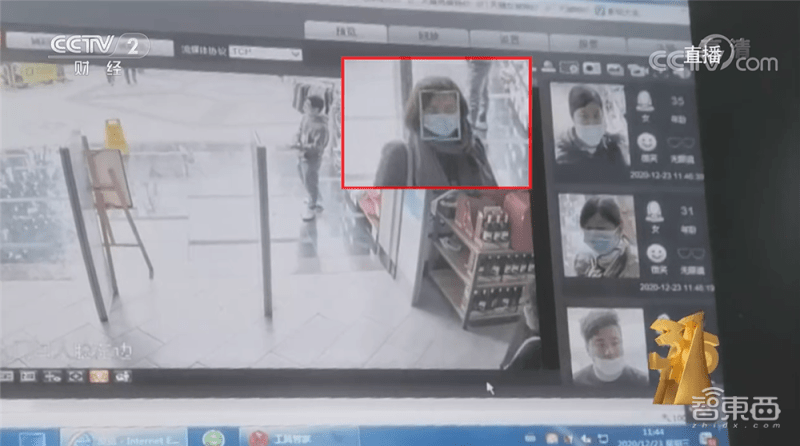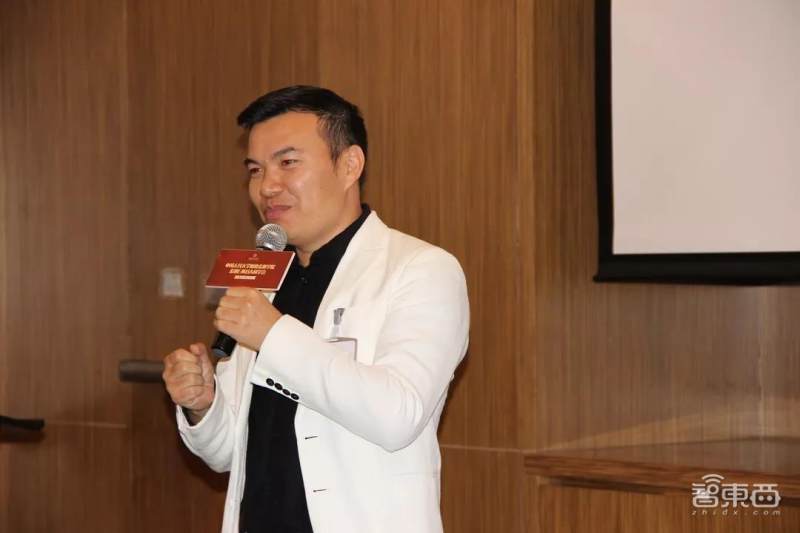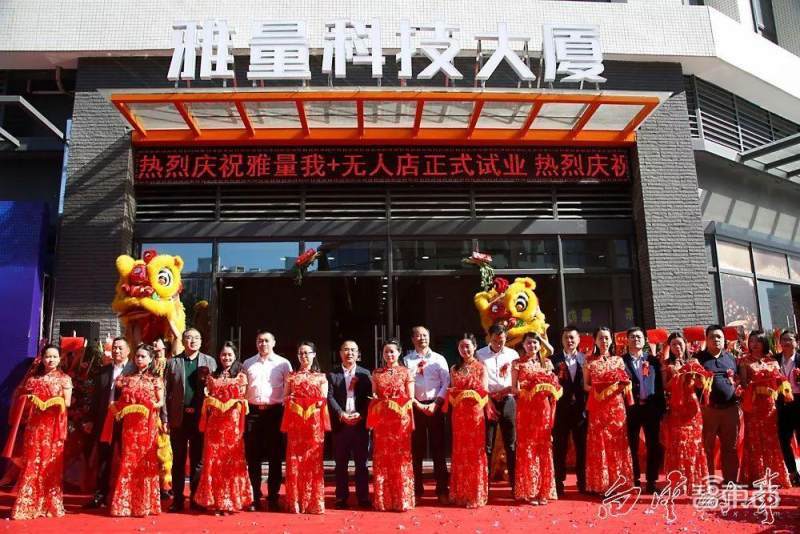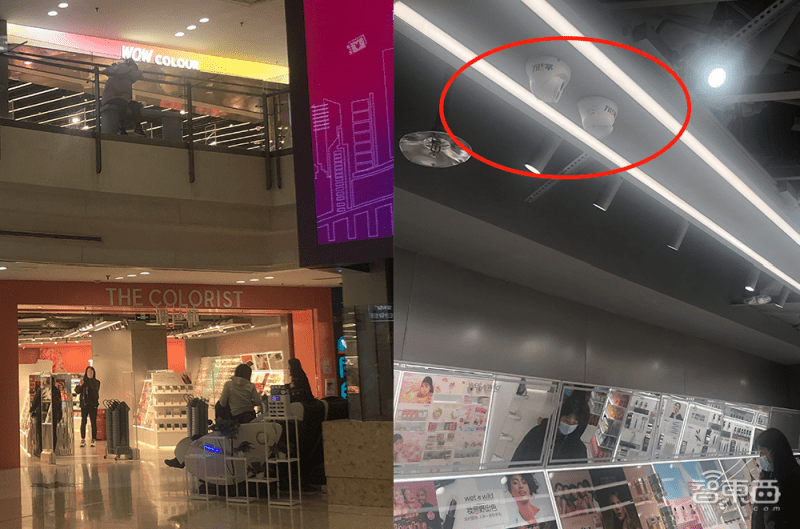
Smart things (public account: zhidxcom)
Author | Li Shuiqing
Edit | Heart edge
In the arena of China’s AI industry, there is a group of players who are grass-roots and little-known, but they spread AI products and solutions from store to store in mall buildings.
When the AI unicorns lose money, they have already made a lot of money; when the technical sect “holds a hammer to find a nail”, their plans have skyrocketed among the people, bringing the initial artificial intelligence enlightenment. However, when problems such as face abuse and data privacy infringement frequently occur, they have also become the group that rushes to the forefront and are closest to the “red line”, and some even try the law by themselves.
The exposure of a 3.15 evening party allowed us to see the brutal growth of AI grassroots companies such as Youluoke, Wandianzhang, Yaliang Technology, etc., and began to pay attention to the transformative forces that have grown from traditional industries. At the same time, the recent explosions of AI companies, the detention of smart city pioneers in the past, and the loss of market value among other emergencies have also brought more attention to the true living conditions of AI grassroots companies.

▲Some AI companies were named at the “3.15” party to deal with facial information in violation of regulations
In addition to the AI unicorns under the spotlight, there are thousands of AI “grassroots” companies in China, but their image is not vague. In this article, we will try to depict the AI ”grassroots” group image in the general pattern of China’s artificial intelligence industrialization from the individual stories of AI companies such as Youluoke, Yaliang Technology, Wandianzhang, and Huina Technology, and explore the vitality and vitality of China’s intelligent industry development. A great force for coexistence of instability.
1. Find a good project by chance and start the original accumulation early
Go to Hey Tea to buy a tea, go to Bubble Matt to smoke a blind box, and then have a meal in South Beauty. You may have a deep interaction with smart camera products-but these cameras are probably neither from Haikang or University Security giants like Hua do not come from the popular AI unicorns like Shangtang and Defiance.
If you look closely at the logo on the camera, you will find that it is actually Ulucu, Wandianzhang and other “unknown people” logos.

The AI manufacturer Youluoke’s position in the smart retail industry is all based on data:
- There are 500 million faces on the platform, the world’s leading algorithm platform
2.2 million + cloud platform camera access
3.10 years + concentrate on being a platform
41,656 thousand cumulative number of signed stores
5.1800+ national service outlets
620 million PAAS platform calls per month
An accumulation of original customers and data that are the envy of popular AI star companies!
“Grassroots” Youluoke’s unique trick is-early. As early as 2008, when the “AI Four Little Dragons” were not yet born, the entrepreneur Shen Xiuping received a request from a foreign boss who wanted to view Chinese factories in the United States through video surveillance. However, after waiting for Shen to work for a few months, the boss disappeared. This encounter allowed Shen Xiuping to discover a new business opportunity-there are 200 million cameras in use around the world. If they are all connected to the Internet, it will form a huge energy.

▲Shen Xiuping, founder and CEO of Youluoke
Therefore, Shen Xiuping brought in Liu Dongdong, the former head of Tudou.com’s technology, to set up Yoluoke, to participate in the big wave of corporate management reform. Yoluoke’s first business was to establish a “24-hour security center” for a food chain company, and then it was out of control with a “word of mouth” approach.
In 2016, Ulog was listed on the NEEQ. At that time, Yuncong Technology, one of the “AI Four Dragons”, was only established for one year. Then, Uluoke received a C+ round of investment led by Tencent in 2018, and reached a strategic cooperation to jointly deploy smart retail. At this point, this grassroots AI retail company has taken further steps with the help of capital and opened a bloody path in the AI retail industry.
2. In the golden age, grassroots “little cleverness” accomplishes great things
Also starting early is Yaliang Technology, which is also a “beating player” in the field of smart retail serving millions of stores, and Yaliang Technology has a more wild path.
Yaliang Technology was established in 2006. It started as a retail label paper and clip, and then went to store design, and then to a higher-end software system. At present, the company focuses on computer AI intelligent visual recognition, ultra-low-power wireless radio frequency communication and other technologies, and provides digital store solutions for many chain brands such as JD, Xiaomi, One Plus One, Shunkelong, and Jinbo Plaza.
Shi Zhongbo, the founder of Yaliang Technology, is a real grassroots entrepreneur with a legendary experience.

▲Shi Zhongbo, Chairman of Yaliang Technology
Shi Zhongbo worked as a media at Huicong.com in his early years. When he started his business from shopping mall advertising paper in 2006, he had only 20,000 yuan in his pocket. He saw others make money from shopping mall label paper and went to make “cottage money.” After the market started, the defendant infringed on the intellectual property rights, so Shi Zhongbo asked others to have a seafood meal and switched to label paper clips. When he was the poorest, Shi Zhongbo had a net worth of only 5,000 yuan, and he was taken by the underworld to demand debts.
Fortunately, Shi Zhongbo is able to be ahead of the national market whether it is making label paper or making clips. Relying on the focus on store changes, Shi Zhongbo’s Yaliang technology has also changed with time, developing big data and intelligent services. “We will change as the store changes. Today the store needs big data, so we will cultivate software to provide the store with design and big data.” Shi Zhongbo once said.
Shi Zhongbo bluntly said in an interview in 2017: “People’s cleverness was still very effective in that era. I have always said that 1998 to 2008 was China’s golden decade. People are stupid and have a lot of money, and it is relatively easy to make money. The market is Scarce and great demand. The most important issue is that many of the CEOs at that time were basically unprofessionals, basically some grassroots entrepreneurs, and we tried our best.”
When Shi Zhongbo was doing foreign trade, he only understood domestic trade, and he didn’t understand label paper and clips when he made label paper and clips. Big data was also done because store customers needed to do it. However, with the “little wisdom” of such a grassroots entrepreneur, Shi Zhongbo’s digital store solutions are flourishing.

What Shi Zhongbo does is not only recognized by customers, but also recognized by capital. Just as offline retail was recently affected by the epidemic, in February 2021, Yaliang Business Intelligence, a subsidiary of Yaliang Technology, also received tens of millions of yuan in Pre-A round financing led by Jujia Capital and Huayang Xintong.
It is undeniable that the development of the AI industry needs technology original companies such as Huawei and the “AI Four Dragons” to overcome difficulties in making deep learning open source models and cutting-edge chips; but you cannot deny that the industry cannot do without these seemingly unprofessional but keen sense of smell , Reckless entrepreneurs who dare to venture and fight, make AI work and expand.
3. Some of the grassroots are completely laymen, and some are from the “Industry Whampoa Military Academy”
In the savagely growing AI grassroots startups, there are sometimes non-professionals such as Zhong Bo, and professional and technical schools such as Zhou Shengqiang, founder and CEO of Wandian.
Wandian’s AI retail solution market is no less disadvantaged than Ulog. CEO Zhou Shengqiang was once the deputy general manager of the monitoring product line of Suzhou Keda, known as the “Whampoa Military Academy” in the security industry. As early as at the 2012 China Security Expo, Zhou Shengqiang had high hopes for AI and made bold ambitions. In 2013, he would lead his team to open new paths in the underlying image processing technology and intelligent applications.

▲Zhou Shengqiang, founder and CEO of Wandianzhang
In September 2016, on the eve of Suzhou Keda’s listing, the commercial and retail division of Suzhou Keda Technology “singed” and Wandianzhang Company was formally established.
The day of solo flight is when Wandianzhang’s AI retail business takes off. The company is positioned as an offline retail scene intelligent management and data analysis service provider. The main product is a store operation management platform based on video analysis, providing smart retail services such as smart shop patrol, passenger flow statistics, member identification, and store live broadcasts.
In just one year after its establishment, Wandianzhang achieved explosive growth in 2017-data shows that at the end of 2017, a total of 50,000 stores of more than 500 companies were connected to the Wandianzhang system, including more than 20,000 retail pharmacies. , The top 100 chains have covered more than 60%.
At the same time, Wandianzhang has rapidly iteratively upgraded the software technical functions, such as developing and upgrading the functional modules frequently used by chain enterprises such as passenger flow, face recognition, sign-in, conferences, and training. Wandianzhang and Youluoke in the field of AI retail can be said to be competing for hegemony in the northern market, and even the presence of Kangwei monitoring the old sea has been preempted.

The rapid growth of Wandianzhang has attracted the attention of capital. In June 2017, Wandianzhang obtained Jinshajiang Ventures’ A round of 15 million financing at a valuation of 100 million. The project was funded by venture capital stars Didi and Ele. Zhu Xiaohu, an investor and “unicorn catcher”, led the investment. In 2020, Wandianzhang officially announced that a Series B financing of 80 million yuan will be led by Deutsche Capital, with Yuanhai Minghua and Su Gaoxin as co-investors.
At present, Wandianzhang has more than 1,000 service brands, starting from the pharmaceutical industry to cover more than 60% of the top 100 pharmaceutical retail companies, and now Wandianzhang has covered many industries in the fast-moving consumer goods, food industry, and home furnishing industries.
We can see that the three most commonly talked about in the visual AI circle are nothing more than AI star startups represented by the AI Four Dragons such as Shangtang and Megvii, communication giants and Internet giants represented by Huawei and BAT, and Hai Kang, Dahua and other intelligent security companies, but when we jumped out of this pattern, we found that native players in thousands of industries have also experienced the baptism of informationization to digitalization and intelligence, bringing artificial intelligence to the market from the bottom up. Education and enlightenment.
4. Adventurous: The former leader of the smart city was detained by criminals, sighing
When the trend of artificial intelligence comes, these grassroots entrepreneurial teams are the vanguard of the intelligent industry, but at the same time, they also face unknown risks. The character of daring to fight and fight has allowed these grassroots AI entrepreneurs to taste the first lipstick of artificial intelligence, but at the same time, the abuse of face data and data leakage have become the hardest hit areas.
This year’s 3.15 party had a “slam hammer” face recognition, not the technology itself, but the radical technology application methods of some AI manufacturers. The AI players named in the 3.15 party have not yet caused serious consequences, but some more out-of-the-box AI companies have already tasted the bitter fruit of rash advancement.
In December 2020, Zhang Hongjun, chairman of the smart retail company Huina Technology, was detained for bribery. The former “leading pioneer of smart cities” is embarrassing.
At the beginning, Winner Technology started to conduct statistics on the passenger flow of the offline retail industry. Looking back on the past, as early as 2004 when e-commerce was making great strides, Zhang Hongjun took a fancy to offline business opportunities. For more than ten years, the company has step by step from the data collection service of the earliest small stores to the data cloud platform of the shopping center and the big plan of AI passenger flow analysis, and the business is booming.

▲Huina Technology’s large shopping mall passenger flow insight backstage was inspected by relevant law enforcement officers after the 315 party
In 2017, Huina Technology held the title of China’s first offline commercial big data company and was listed on the A-share GEM, with little limelight.
In 2019, when the AI unicorns were still at a big loss, Huina Technology’s 2019 financial report showed that the company’s annual revenue reached 325 million, a year-on-year increase of 30.35%.This is more than double the receivables of AI unicorns, but Huina Technology has achievedNet profit was 72.97 million, a year-on-year increase of 9.60%.
In Zhang Hongjun’s view, the future of Huina Technology is limitless. He once said that Huina Technology is actually doing one thing, which is to study the behavior of offline consumers, and when it has such capabilities, It will not be restricted by places and scenes.
However, the time is pulled to 2020, and due to the impact of the epidemic, the offline retail business of Huina Technology has fallen sharply. Now that the bribery case comes out, coupled with the “secondary disaster” of the 315 gala, the already fragile companies are even more dying. In just four months, the market value of Huina Technology’s 5.6 billion yuan has evaporated by nearly 3/4.
Dare to break and fight so that companies such as Huina Technology can enjoy the full-blown dividends. Huina Technology’s non-operating income in 2019 was 7,444,800, 2018 was 5.105 million, and 2017 was 2.24 million, mostly from government financial support and subsidies. However, this “grassroots” character also makes entrepreneurs such as Zhang Hongjun pay less attention to many principled issues.
This makes people think of the comments made by Lei Dongbao, the village committee secretary who led the villagers out of poverty, in the drama “Big Rivers” depicting the reform and opening up.
“This is not his own problem. Our reforms have always been crossing the river by feeling the stones. Some people took the lead in taking advantage of some kind of opportunity. At that time, it seemed that they had violated the laws and regulations, but then the system followed and almost It can be said to save them from crime. On the other hand, it also made Dongbao and others misunderstood in their hearts, thinking that the government could acquiesce to them to violate laws and regulations repeatedly.”
Just as reform and opening up requires a group of pioneers, the development of artificial intelligence cannot do without a group of “grassroots” pioneers advancing at the grassroots level. However, the development of artificial intelligence is also currently facing the stage of “crossing the river by touching the stones”, requiring companies and relevant departments to jointly seek new mechanisms and systems to solve new problems.
Conclusion: To cross the river by touching the stones, AI grassroots enterprises need institutional norms
At present, artificial intelligence is called the “Fourth Industrial Revolution”. my country is vigorously developing artificial intelligence technology, among which a number of AI “grassroots” companies that dare to dare to fight have emerged. Perhaps it is not comprehensive enough to describe the group image of AI grassroots companies with a few companies, but from them, we can see the most distinctive vitality and instability of “grassroots”.
At the same time, our artificial intelligence development is still “crossing the river by touching the stones”. When problems such as the abuse of facial data that broke out at the 315 party, our goal is not to catch the pigtails of AI companies, but to sound the alarm. , And seek to promote the healthy development of artificial intelligence from the mechanism and system.




























































You must log in to post a comment.